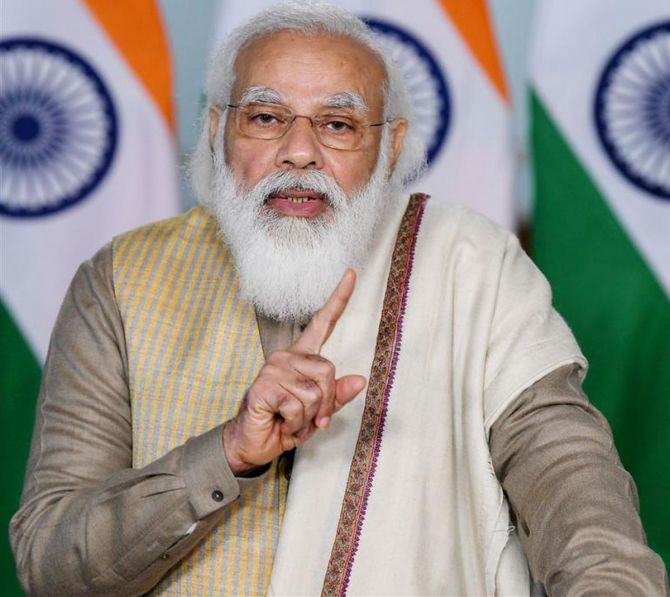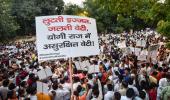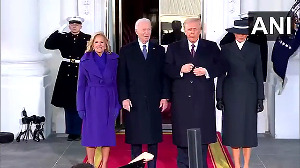'It is difficult to see how we will be able to get out of the hole that we have dug ourselves into and are digging deeper into,' notes Aakar Patel.

One of the many globally measured indicators that India has fallen in since 2014 is the Fragile States Index.
Previously called the Failed States Index, it records security (of all types) and economic development.
It categorises States are being one of 11 categories.
The nations most likely to sustain their success are the Nordic nations of Finland, Norway, Denmark, Finland and Iceland along with others like Canada, New Zealand and Australia.
India is not in this category or the next one or the one after that, which are sustainable or even stable.
It is in a category fifth from the bottom, which is classified as 'Elevated Warning'.
Our fellow category members are those like Colombia, Brazil, Israel, Algeria, Russia and Senegal.
There are 30 nations in this category, but only four of the 30 have declined since last year: Brazil, Colombia, Bolivia and India.
In the detailed chapter on India, the index tells us why it is they think our future is more likely to be shared with these nations rather than with the prosperous and democratic western countries that we want to be with.
It says because of this government's 'poorly thought out and implemented reforms, India's economic growth has slowed, declining to its lowest nominal level since 1978.
'Modi's response -- an embrace of protectionism, higher government investment, bank lending targets, and direct export assistance -- has been unable to reverse this trend.'
On the side of security it records the problems India has had with its own citizens starting from the National Register of Citizens (about which we still have no certainty on whether it is going to be implemented nationwide), the turmoil in Kashmir and the attack on free speech.
A failed State is one where the government is not in control.
This is a simplistic explanation.
In control of what? In control of rule of law, the economy, security, stability and development.
India's history as a formal democracy and its generally benign image around the world has hidden our fragility elsewhere.
An India going after its own citizens aggressively has alarmed other nations.
The world also links India's failing on the economic front as being linked to the Hindutva agenda because it is tearing apart the social fabric and thus harming what it sees as the security of Indians.
The index only predicts where things are and indicates to us where we are headed, but it does not say what is needed to correct course.
Common sense tells us that the first thing we should be doing is stopping what we are doing under Modi because it is taking us in the wrong direction.
Both economically and socially we have regressed and have done so in visible fashion.
It bears repeating that this government's own data shows that Indians were earning and eating less in 2018 than they were in 2012.
And this was before we began 36 months of decline in growth.
What the situation is currently in the economy only the gods know.
But are we stopping and reversing the direction that we are being taken in? Of course not.
We are headed towards disaster ever more quickly.
We do not have the internal structures for self-correction.
It is difficult to see how we will be able to get out of the hole that we have dug ourselves into and are digging deeper into.
What we think and feel about India is one thing.
What the rest of the world sees us doing is another.
They are predicting a future for us that will frighten Indians if they were to be told that this is where we are headed.
But despite the fact that it has delivered a recession, on the back of three years of economic decline, with record unemployment and severe social stress, this is not the narrative we are being fed by our government.
A couple of decades or so ago, Indian analysts (including myself) took great joy in the fact that the index was predicting that Pakistan was fast becoming a failed State.
We had not anticipated then that India would be put on the same trajectory and so soon.
Aakar Patel is a columnist and writer and you can read Aakar's earlier columns here.
Feature Presentation: Aslam Hunani/Rediff.com











 © 2025
© 2025